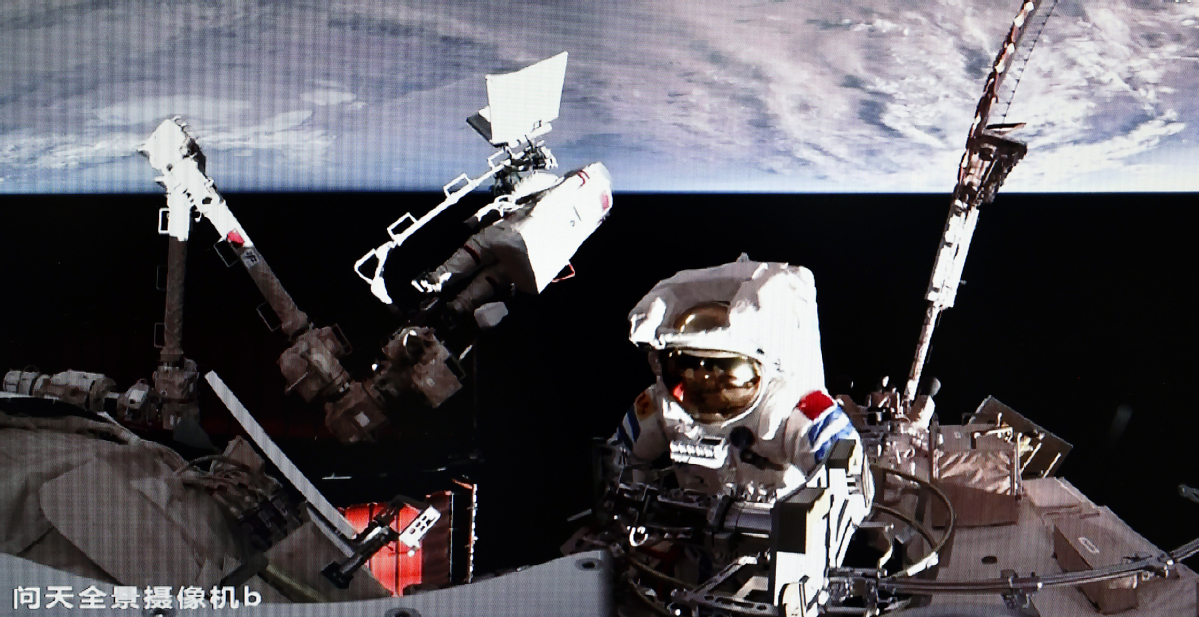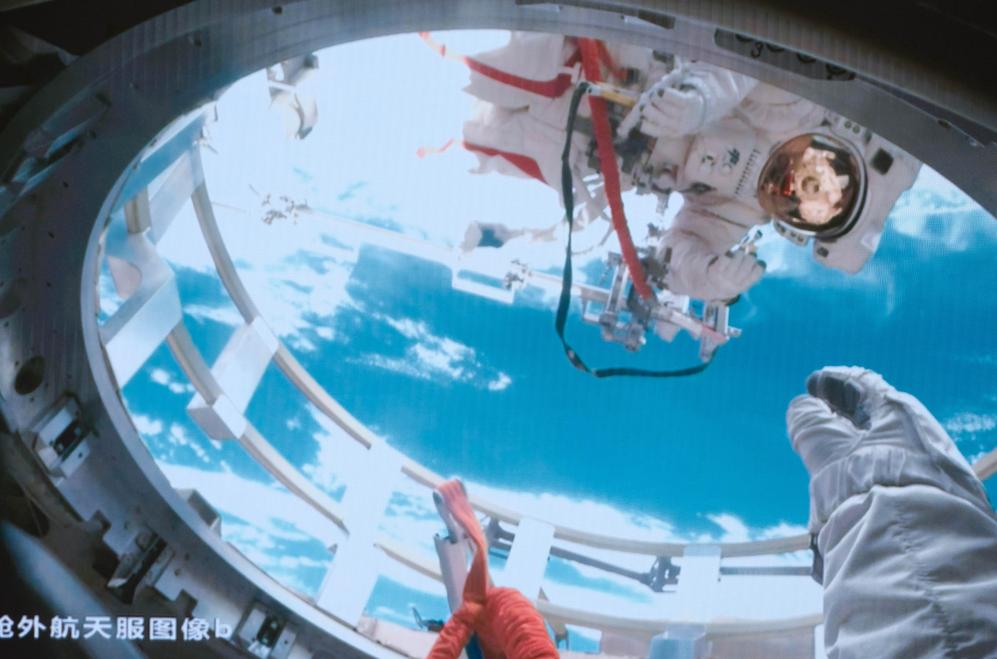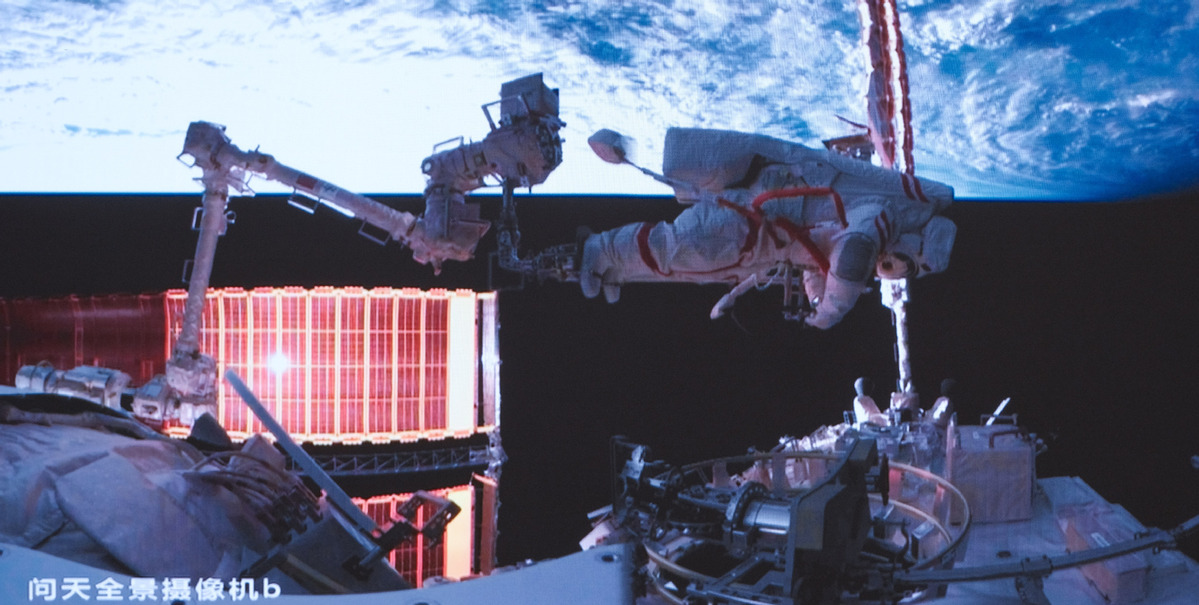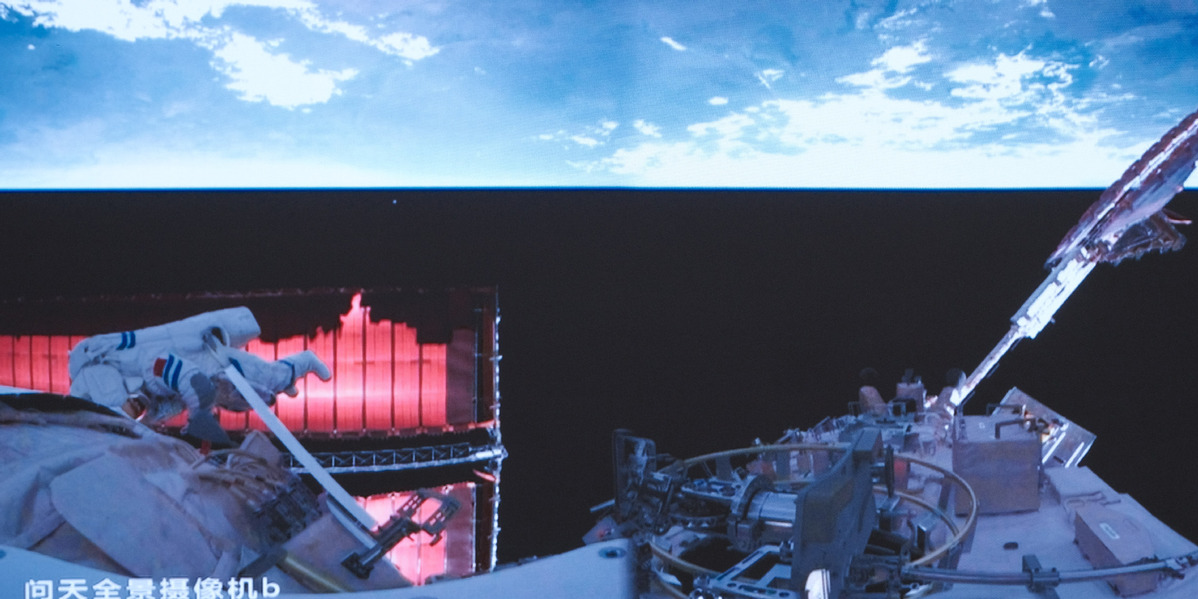Shenzhou XIX crew members in spacewalk


Shenzhou XIX mission crew members conducted their first spacewalk outside the Tiangong space station on Tuesday, completing several assignments, according to the China Manned Space Agency.
The agency said in a news release that mission commander Senior Colonel Cai Xuzhe and crew member Lieutenant Colonel Song Lingdong returned to the Wentian science module at 9:57 pm after floating nine hours outside the colossal orbital station. The third crew member, Lieutenant Colonel Wang Haoze, stayed inside Tiangong to provide support, it said.

With support from ground controllers and the use of a robotic arm, the team completed all their assigned tasks, including installing space debris shield devices and checking the condition of extravehicular equipment, the agency said.
It was the 18th spacewalk carried out by Chinese astronauts and the longest such operation by this country so far. Next, they will carry out a large amount of scientific experiments and technological tests, and will conduct multiple spacewalks and payload deployment operations, according to the release.
This has been the third time for Cai to carry out a spacewalk. He made two spacewalks during his first orbital journey in the Shenzhou XIV mission in the second half of 2022.

Meanwhile, Song has become the first Chinese person from the post-1990 generation to have taken part in a spacewalk.
The Shenzhou XIX trio, the eighth group of inhabitants of the Chinese space station, were launched on Oct 30 by a Long March 2F carrier rocket from the Jiuquan Satellite Launch Center in northwestern China and arrived at the orbital outpost later that day to take over from their peers in the Shenzhou XVIII flight.

Over the past 49 days, the astronauts had completed various tasks, including station maintenance, spacesuit checks, emergency response drills and medical aid rehearsals.
The crew is expected to return to Earth in late April or early May.
Orbiting Earth at distance of about 400 kilometers, the Chinese space station has three permanent parts — a core module and two science capsules — and is regularly connected to several visiting crew and cargo spaceships. It weighs about 100 metric tons and is expected to operate for at least 10 years as a national space-based platform for science and technology.


















